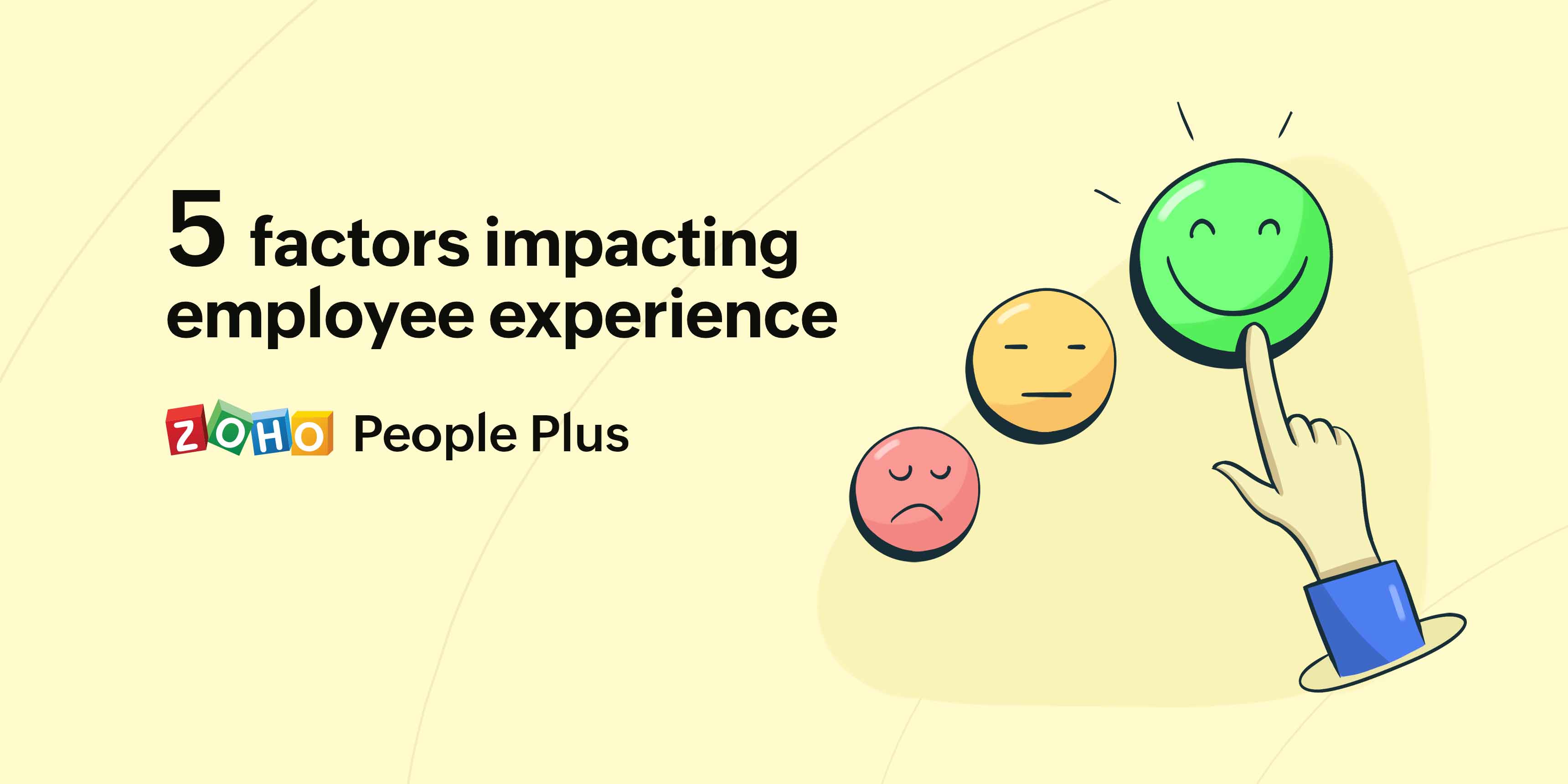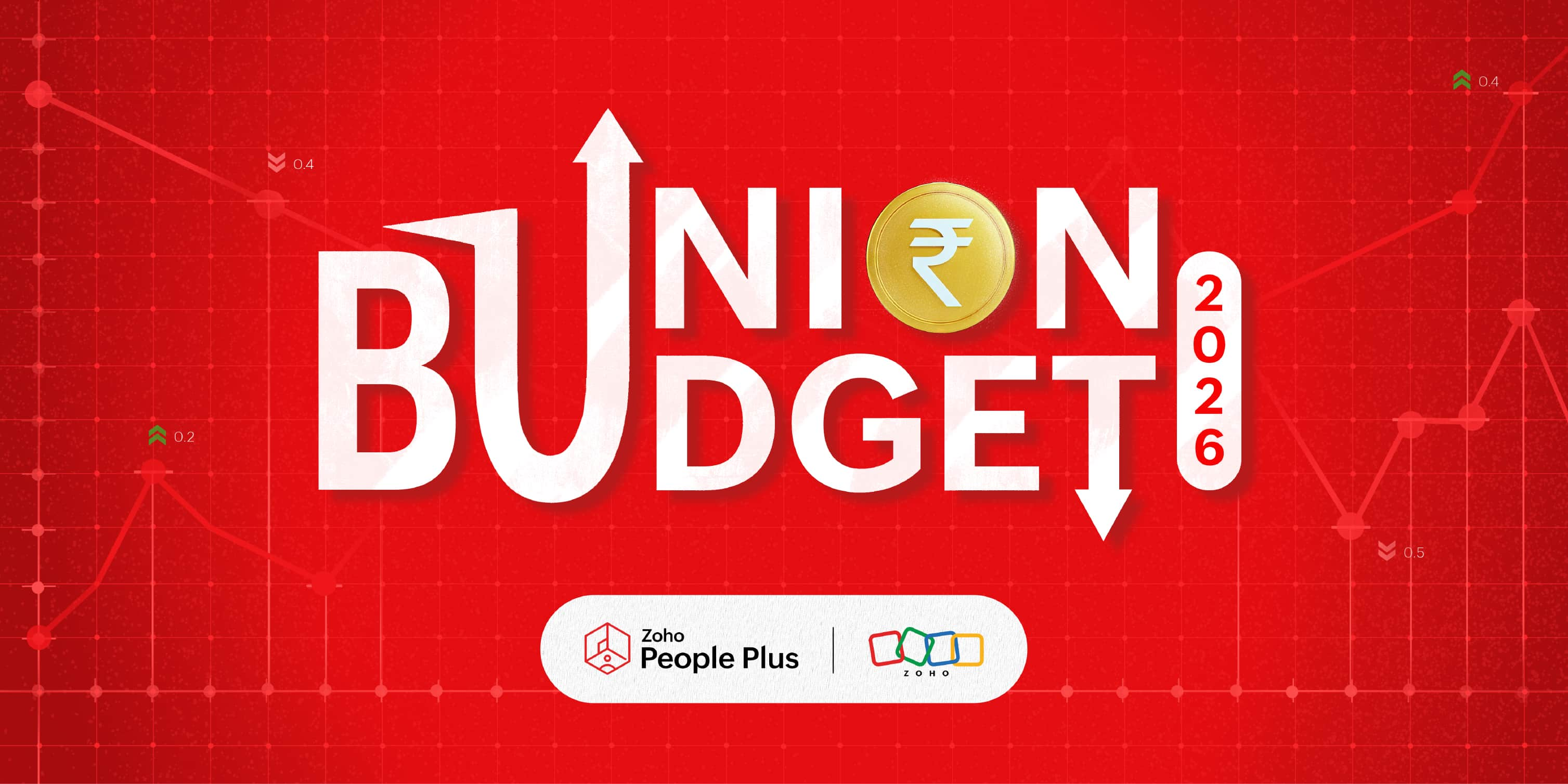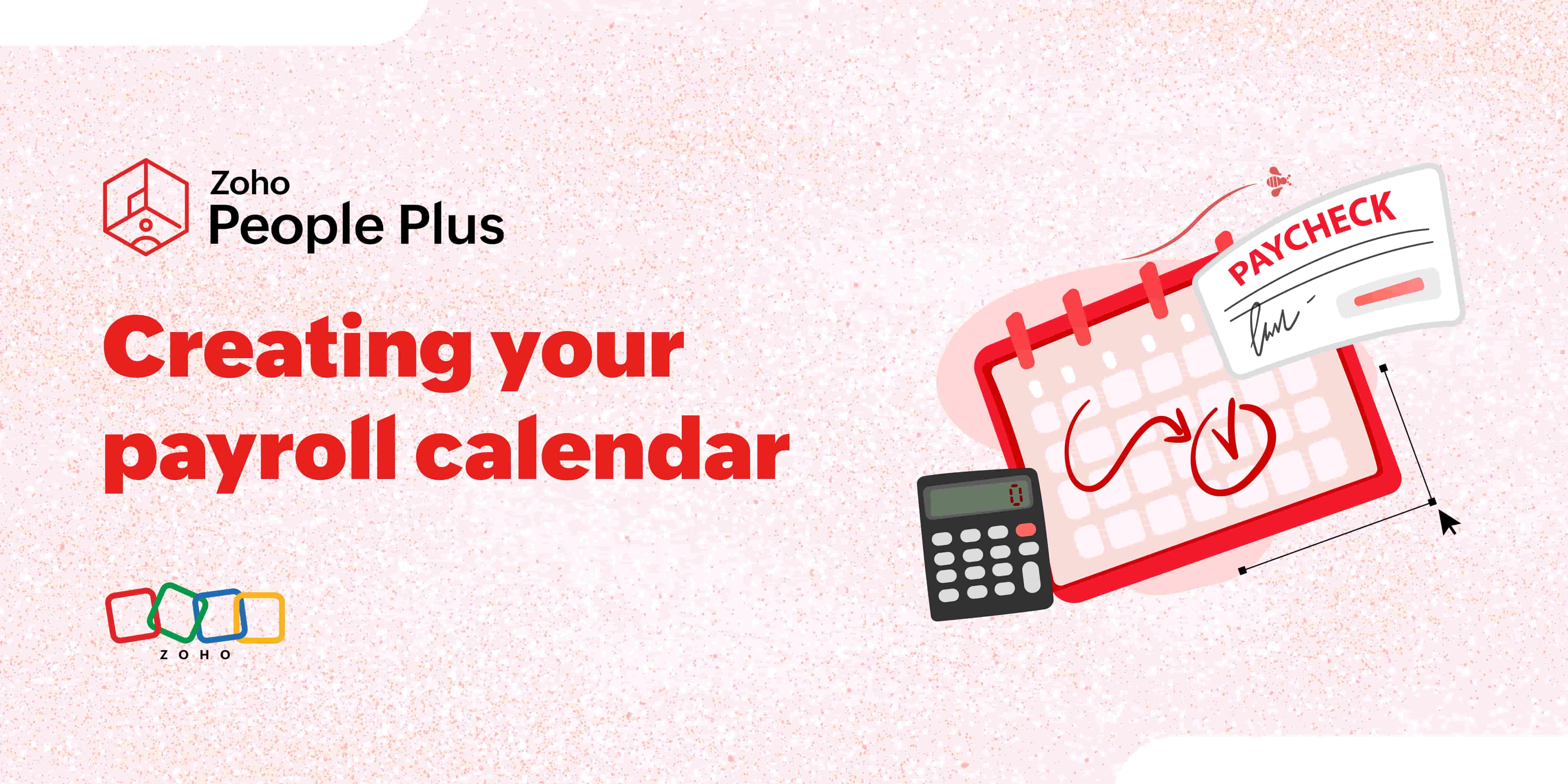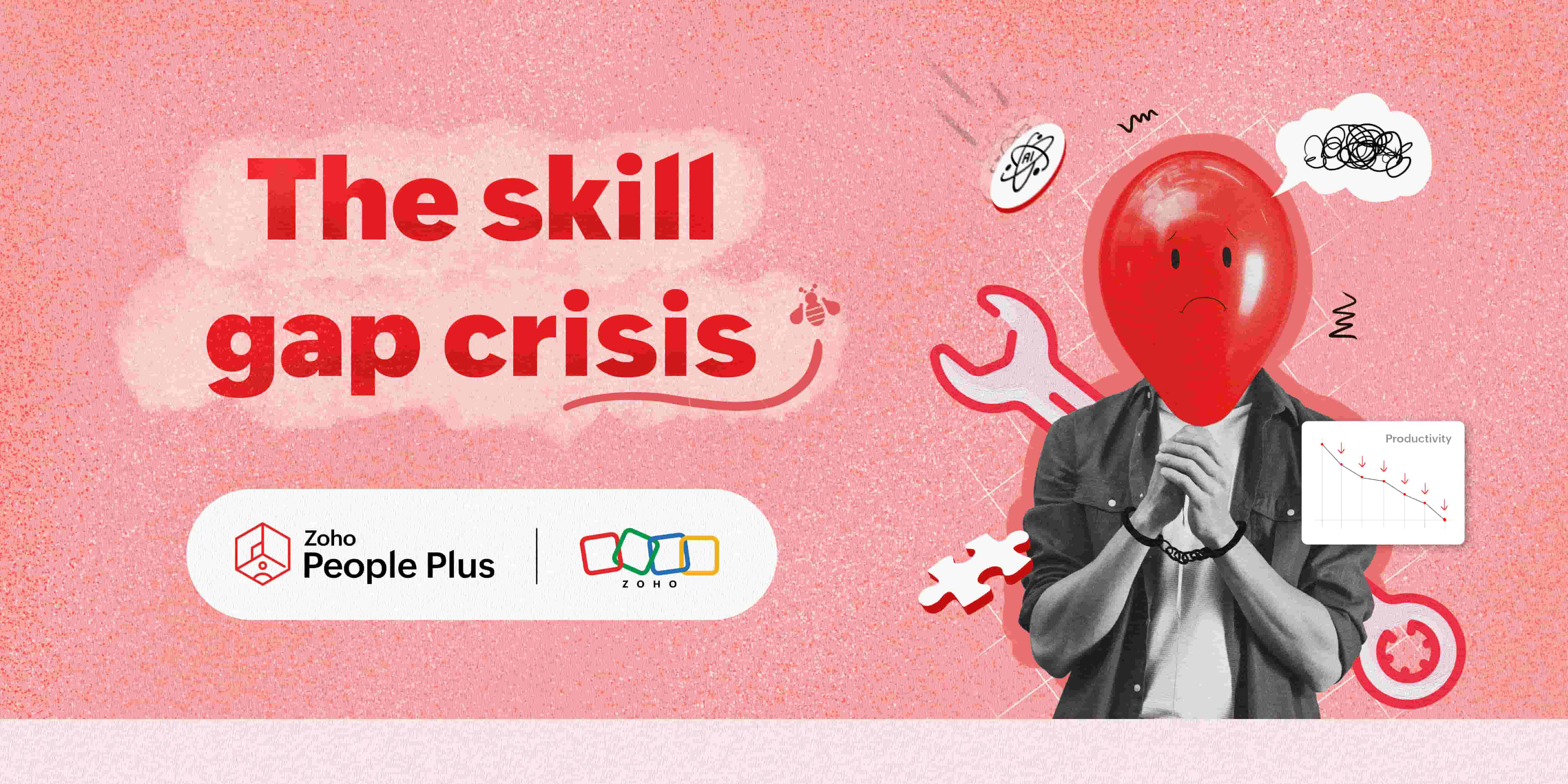5 major factors that influence the employee experience
- Last Updated : November 8, 2023
- 839 Views
- 3 Min Read

We've officially entered the experience economy. Each one of us expects to have memorable experiences with every company, service, and product that we interact with, and our workplace is no exception. Because most employees spend at least 40 hours of their week at work, they expect to have positive experiences throughout their entire lifecycle within their organization.
Employees appreciate smooth onboarding experiences that help them easily get started with their new job responsibilities. They expect to have access to technology and engaging training programs that simplify their days and allow them to grow in their careers. They want great technology that enables them to collaborate and communicate seamlessly with their peers.
However, according to a Gartner survey, only 13% of the surveyed employees are satisfied with their experience at their organization. If you are wondering how to level up your employee experience strategy, here are five workplace aspects that have the most impact:
Workspace
An employee's work environment plays a crucial role in shaping their experience at your organization. For instance, if a team member is working on an important task and finds sitting away from the group helps them concentrate better, your workspace should have suitable arrangements to accommodate those needs. Explore and establish different types of workspaces, including conference rooms, phone rooms, collaboration rooms, learning rooms, and wellness rooms. Make sure the workstations are ergonomic, too. Everything from how the entire room is air conditioned and colored to how it is lit and cleaned impacts the employee experience.
Company culture
Company culture shapes employee perception of an organization. It decides how your C-level executives lead, how your managers handle their teams, how your employees interact with each other, and how your organization operates from day to day. All of these aspects can make or break the employee experience. That's why it's crucial to build a strong company culture that reflects your organization's vision, mission, goals, and values. It's important to weave your company culture into your recruitment and employee management practices effectively so that you attract candidates who align well with those values and ensure they have a good time working at your organization.
Tech tools
According to Harvard Business Review, technology defines the employee experience, especially in a hybrid world. Only 30% of employees feel that their company's technology exceeded their expectations. That's why it's wise to carefully consider employee needs before choosing tech tools. The solutions you adopt should help your employees simplify everyday activities, especially when it comes to commonly performed operations like marking attendance, applying for leave, claiming reimbursements, and checking shift schedules. In addition to this, it's good to have tech tools specific to your employee's job responsibilities. For instance, your marketing team may need access to social media management and campaign scheduling tools, whereas your support team may need access to comprehensive customer service software. When adopting new technology, keep in mind that it's also important to train employees on how to use it.
Growth and recognition
Helping your employees grow and recognizing them for their achievements will elevate their overall working experience. Career development opportunities enable employees to improve consistently, whereas recognition and appreciation motivate them to climb up their career ladder and continue innovating. When you pave the way for career growth, you assure employees that they have a future at your organization. A lack of growth can make your employees feel like they have reached a dead end. It can also cause anxiety and burnout, leading to negative work experiences.
Social Connections
Workplace relationships can have a huge impact on employee experience. Good peer-to-peer rapport leads to more fulfilling experiences for your employees while improving their overall well-being. Build a culture of collaboration, where employees can trust their peers, communicate seamlessly, and work together. The right communication and collaboration tools can make it easy for your employees to brainstorm and exchange feedback with their teams. You could also organize team-building activities regularly to help your employees foster better relationships with their peers.
Wrapping up
Providing an exceptional employee experience can provide a competitive advantage for your organization, which is crucial to attracting talented candidates during the Great Resignation. We hope this blog post gave you insight into the different factors that influence the employee experience.


